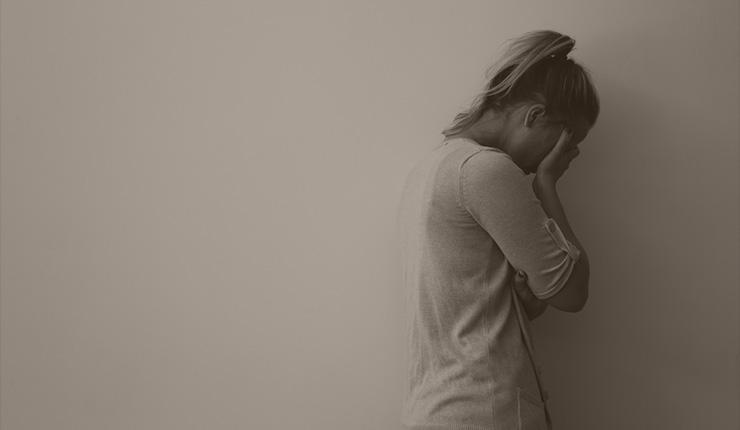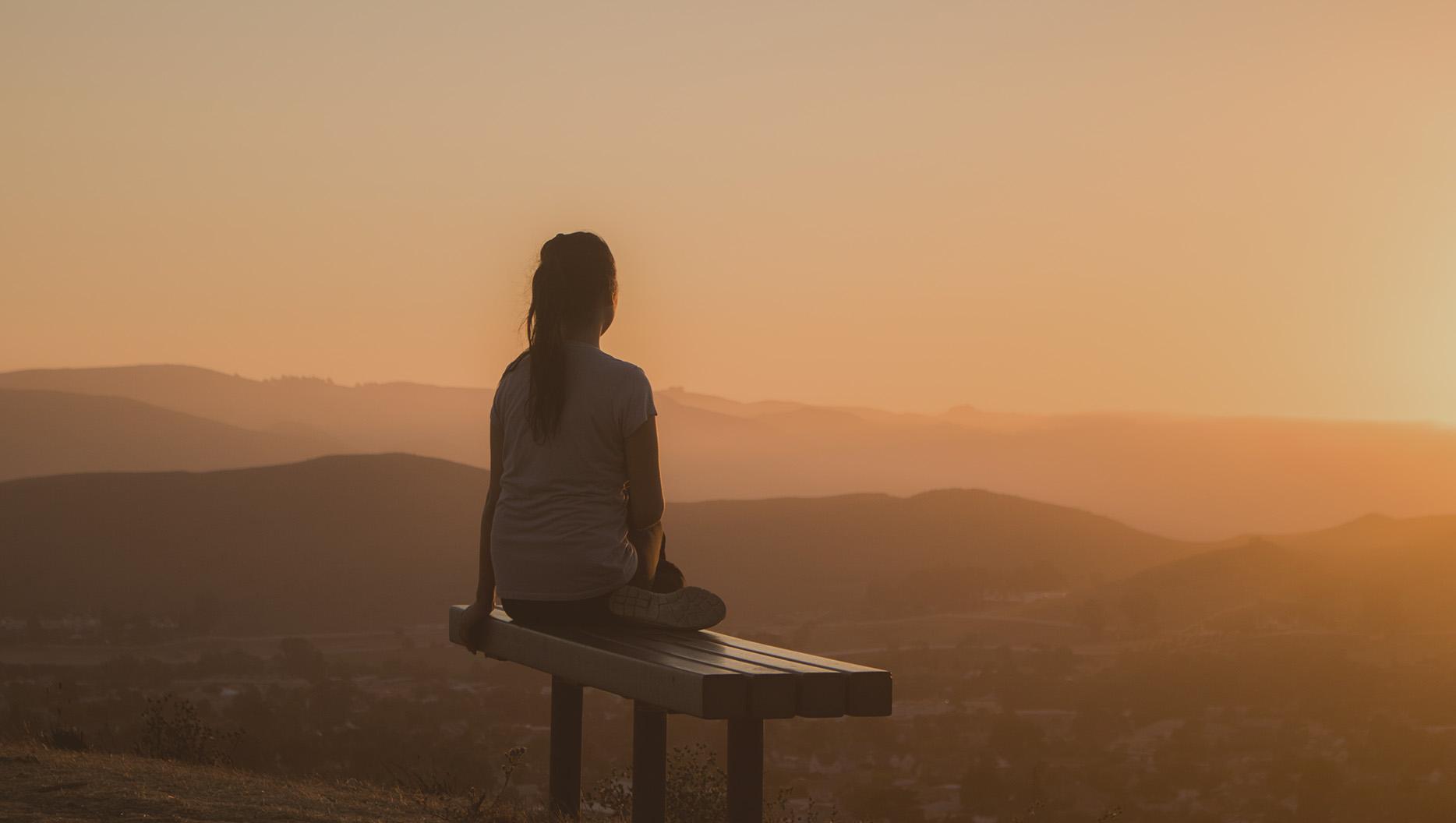It was my first day back at work, and as I sat at my desk I tried my best to get back into the mode of responding to emails and updating myself on what had happened over the past two weeks. I was determined to have some semblance of a normal day. The prior three months had been filled with so much torture and grief. It began with the news that I was pregnant and that my hidden thyroid problems might cause complications. It ended with the news that they could no longer hear our baby’s heartbeat, and then, a miscarriage. I had spent time mourning, reversing the anticipation of carrying this little one to term and becoming parents to a newborn. I had been deeply moved by the outpouring of compassion, prayer, and food from our loved ones and community, but it felt like it was time to put this behind me and return to the life I knew prior to all of this.
I felt myself falling back into my work groove when I glanced up and saw David.1 He had just returned from being out of town, and now he was standing silently in my doorway, staring at me, his eyes filled with compassion and knowing.
He said quietly, “I just heard the news...”
And something within me broke. Tears began to flow down my face as he came and sat down beside me. He shared that he had some idea of the unspeakable pain I was experiencing because he and his wife had miscarried many years ago. He asked how I was doing, and I jokingly said, “I was doing fine until you stopped by.”
I’ve seen this same emotional pattern unfold repeatedly. You go through a horrific experience or loss; it is overwhelming and all-consuming, but then it passes. Things get better and it appears as if the whole thing is behind you, and you even begin to stabilize and recover some sense of normality. And then, it hits you out of the blue. Something taps into the deep well of sorrow that resides deep inside of you—sorrow you didn’t even know was there—and you are flooded with the pain. I call it “the breaking.”
I’ve watched it happen in front of my eyes many times in my counseling. I meet with someone for the first time and as soon as I ask what brought them to counseling, they immediately begin to cry. They have only just met me, but the combination of my empathy, my question, and the opportunity for them to face what they have experienced is enough to break the dam. They almost always apologize for their tears, and I inform them that I will someday have a plaque on my wall that says, “Crying is expected; apologies aren’t welcome.”
Why do these “breakings” come and what is going on? This is what I have gathered.
1. The timing and circumstances around our breaking may be surprising to us, but they often make sense in retrospect.
We often break down when we are overwhelmed by our vulnerability and neediness. We’re not surprised by this when the demands of our circumstances clearly surpass our capacity to handle and respond to them. We are surprised, however, when we no longer feel overwhelmed by our circumstances, but are made aware of our need and vulnerability through another type of experience: encountering the safety, care, and love we have unknowingly longed for. My tears were triggered by David’s compassionate eyes, and the same thing happens with my new counselees. We instinctively think it is enough for us to survive, and it isn’t until we experience someone who knows and cares for us in our pain that we realize that we have always needed more. I needed to encounter God’s love in such a way that I could do nothing but release my cares and sorrows to him. I love the way Sandra McCracken put it in one of her songs, “Shelter”:
In the arms of a good Father
You can go to the deep water
Where the questions, we have left unspoken
Come out in the open
We will find shelter here.2
2. Our breaking is always a part of God’s healing process.
We think the absence of pain is the goal, but God is known for allowing acute pain in service of deeper healing. Like a broken bone that must be reset, the parts of us that have learned to get by without an ever-present awareness of God’s compassionate and knowing care need to be broken afresh in order for us to be made whole again. A week after my encounter with David, I began to bleed heavily and without stopping. It took multiple trips to the ER before the doctors truly recognized and showed concern for what was happening to me. And though they assumed it to be a consequence of my miscarriage, they could not find the source of the bleeding and therefore could not stop it. For days I lay at home, passing blood clot after blood clot, fearing this meant I would likely never be able to bear children.
Not surprisingly, I found myself reading the story of the bleeding woman in the Gospels, a story I had read many times before. As I read Matthew’s version, the words leaped off the page: “Jesus turned and saw her...” (Matt 9:22). And I understood that it was not simply her body that was healed in this encounter, but also her soul as she met eyes with the God of Hagar—El Roi—the God who not only alleviates our pain by taking away painful circumstances but heals our pain by joining and knowing us in it. And when he does this, we need the old us, the one who is used to shouldering pain alone, to break down and dissolve, so that we can be healed and remade into someone who is ever expectant of and reliant upon our compassionate and faithful God.
3. Our last breaking is coming.
A few years ago, my friend David was in his final days on this earth, dying of cancer. I remember feeling numb by the sorrow of losing him and restless under the weight of knowing there was nothing I could do about it. David frequently exhorted us to be willing to “roll up our sleeves and get our hands dirty” when it came to the problems of life, so not knowing what else to do with myself, I took his advice literally and decided to go outside and weed our garden. It wasn’t long before the sky broke open with rain, and somehow this allowed something to break inside of me. As rain rolled down my back, tears rolled down my face. God reminded me in that moment that David was preparing for his last breaking, and that the day would come soon when we would all break for the last time. And on that day, “[God] will wipe away every tear from [our] eyes, and death shall be no more, neither shall there be mourning, nor crying, nor pain anymore, for the former things have passed away” (Rev 21:4).
As I write these things, I am tired and I ache, and I spend my days walking with tired and aching people. Some days I can’t fathom withstanding being broken again and again by the losses and sorrows that are still to come. Maybe you are like me and need to remember on these days that, while our breaking is a sign that we are in the presence of a safe and caring Father, this pattern is temporary. It will end one day. And in the meantime, in those moments when you are afraid you don’t have the strength and composure to last the day, God says this to you:
Fear not, for I am with you; be not dismayed, for I am your God; I will strengthen you, I will help you, I will uphold you with my righteous right hand. (Isa 41:10)
•




